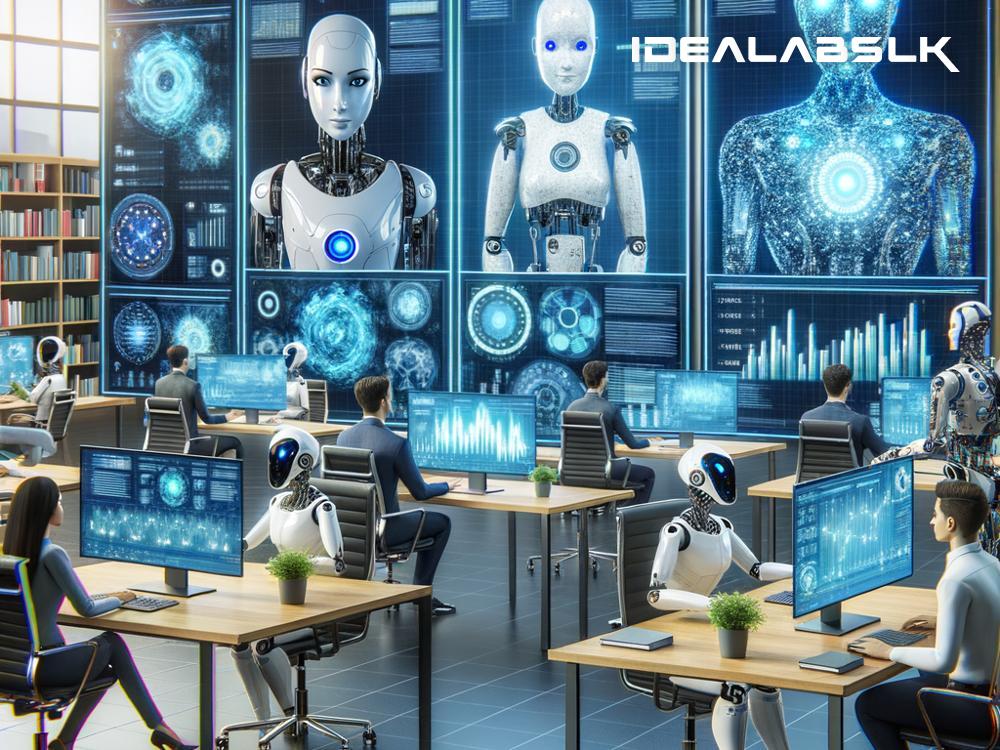The Role of AI in Future Workplace Automation
In today's fast-paced world, technology is changing the landscape of our work lives. At the forefront of this technological revolution is Artificial Intelligence (AI), a mechanism through which machines demonstrate human-like intelligence. AI is increasingly becoming part of our daily routines, and its role in future workplace automation is a hot topic. It's fascinating to envision a future where AI could handle tasks, leading to efficiency, innovation, and even new job creation. Let's dive into the intriguing world of AI and its potential impact on the future workplace.
Streamlining Tasks with AI
AI is all about smart automation. It can take on repetitive tasks, process vast amounts of data quickly, and even make data-driven decisions. Imagine logging into work and having AI handle your scheduling, emailing, and report analysis. It's not about replacing humans but letting AI handle the monotonous tasks, freeing up people to focus on more creative and strategic activities. This switch can lead to a more engaging and fulfilling work environment.
AI and Decision Making
AI doesn't just stop at routine tasks; it's also evolving to assist in complex decision-making processes. With its ability to analyze patterns and trends from large datasets, AI can provide insights that might not be immediately obvious to humans. For managers and leaders, this could be a game-changer. From predicting market trends to assessing risk, AI could provide a helping hand in making more informed and strategic decisions.
Customizing the Employee Experience
The future workplace isn't just about efficiency and decisions; it's also about the employee experience. AI has the potential to revolutionize how businesses manage and support their employees. From personalized training programs based on an employee's performance and learning style to AI-driven health and wellness recommendations, the workplace could become a more supportive and adaptive environment. This not only benefits the employees but can also lead to higher productivity and job satisfaction.
Future Job Landscape and AI
There's a lot of debate about AI and jobs. Yes, AI will automate certain tasks, possibly leading to the redundancy of some roles. However, history shows us that technology also creates new job opportunities. The future is likely to see a demand for AI-related skills — from programming and machine learning to AI ethics and policy. Moreover, as AI takes over routine tasks, there's potential for an increase in jobs requiring human touch — empathy, creativity, and strategic thinking. It's a shift from doing the work to managing and improving how the work is done.
Enhancing Collaboration and Creativity
One exciting aspect of AI in the workplace is its potential to boost collaboration and creativity. AI tools can help teams from around the world work together more efficiently, breaking down barriers of language and time zones. Furthermore, by taking over the drudgery of data analysis and administrative tasks, AI frees up humans to engage in more creative and innovative endeavors. Teams can spend more time brainstorming and pushing the boundaries of what's possible, knowing that AI has got the back-office work covered.
Preparing for an AI-Driven Workplace
Embracing an AI-driven future requires preparation. For businesses, it's about staying ahead in AI adoption and creating a culture that sees technology as a tool for enhancement rather than a threat. For employees, it means being open to learning new skills and adapting to changes in the workplace dynamic. Education systems also need to evolve, with a focus on skills that will be relevant in an AI-powered world – not just technical abilities but also soft skills like critical thinking and adaptability.
Conclusion
The role of AI in future workplace automation offers a canvas full of exciting possibilities and opportunities. From enhancing efficiency and decision-making to fostering creativity and human collaboration, AI has the potential to transform our workplaces for the better. However, this future also comes with responsibilities. Companies, individuals, and policymakers must navigate these changes thoughtfully, ensuring that the AI revolution benefits all. By embracing AI and preparing for its impact, we can unlock a future where work is not just about what we do, but how we innovate, collaborate, and grow.

